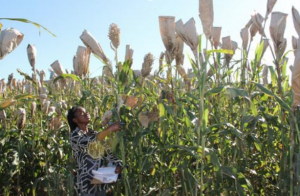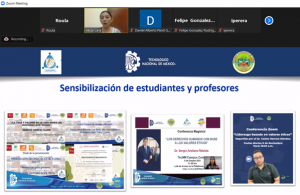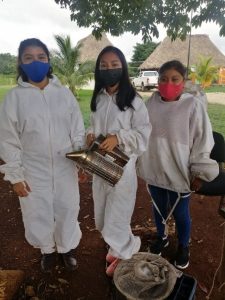The pilot universities are committed to the certainty of wanting to educate leaders, “agents of change”, with ethics and values, with a business entrepreneurship mentality and a responsibility to their communities. They recognize an obligation to acquire knowledge that must be shared and that we have to make widely available in our communities and beyond.
 Each institution has a vision of having a greater impact in their communities and graduating professionals of greater relevance, who can lead changes in society, generating well-being for their communities and country. They have the expectation that their graduates will return to their communities to contribute to their development.
Each institution has a vision of having a greater impact in their communities and graduating professionals of greater relevance, who can lead changes in society, generating well-being for their communities and country. They have the expectation that their graduates will return to their communities to contribute to their development.
Our Universities need to transform themselves, although it is difficult.
- He who does not try does not change.
- It is impossible to have different results doing the same thing.
- Not everything will be perfect. Sometimes you have to adapt or restart and move forward.
- We must leave our comfort zone to be able to strongly impact each of the elements or axes of success.
The central focus of the university should be on the training of future professionals, ethical leaders, agents of change. The student is what is important and the raison d’être of the educational process, therefore, their training, growth, and maturation must be what we seek with the university transformation. To educate the professionals we need with the capabilities, skills, and knowledge necessary to meet the needs of society and the graduates themselves.
The five elements of success (experiential and practical learning, community engagement, entrepreneurial education, values-based education, and conflict resolution through dialogue) are essential for the education of “Agents of Change”. We find that they are interrelated with each other and for this reason it is more efficient and more effective to treat them comprehensively and not individually. The four universities are introducing each of the elements of success.
All the pilot universities see experiential learning as the central didactic methodology of their new educational model and that it is transforming the processes and quality of student learning and training at their institutions.
The Universities are implementing and/or strengthening community engagement in different ways: applied research projects, volunteering, internships, courses or subjects, field days, technical consultancies, creation of a community development program, strengthening of the outreach program, among others.
- The Universities mentioned some of the learning that has taken place by the students through community engagement activities, such as how to: understand and analyze reality, create networks, visualize project opportunities, make decisions to solve real problems, critically analyze problems and design ways to solve these problems, get out of their comfort zones, promote their leadership, increase their interest in participation and become engines of community engagement.

The pilot universities recognize the importance of training graduates with the ability to develop their own businesses and with an entrepreneurial mindset for the purpose of generating self-employment and community employment, developing added value throughout the value chain, and generating greater dynamism for local economies and communities. Therefore, one shared objective is the training of agricultural professionals as entrepreneurs and with an entrepreneurial mentality.
The entrepreneurial education initiatives proposed have had many positive impacts that are noted here:
- They have led to greater engagement with the communities by students and teachers. In some cases, this has been fueled by projects that the university is developing with producers and businesses, or by the pandemic itself that has prompted an approximation to the community to continue educational actions. Self-employment by students, teamwork and multidisciplinary work, and the development of community leaders among students have been promoted. A greater development of soft skills has been achieved by students, including an appropriation of self-learning skills and responsibility.
- We must institutionalize the education of ethics and values as an integral part of the educational model of the university. To achieve this, it must be integrated systemically within the university educational experience, and it must be treated systematically across university activities. All the pilot universities recognize that training in values is the task of everyone in the institution, from gardeners, drivers, cooks, administrators, teachers and even the senior university presidents.
- The university plays a unique role in training students with the skills to handle conflict and its resolution. Conflicts are part of everyday life that must be managed as part of personal, social, professional, political, business interactions, and as teachers and students. The university presents students with situations and scenarios of conflict, at the academic level, at the level between professors and students, and between students. The change from home to entering the university and facing many differences in culture, thinking, and acting, create a lot of conflict on a personal and emotional level for the students. It is essential that these situations become learning opportunities, to assist in learning how to confront conflict in a positive way, leading to greater maturation and the ability to manage conflict through dialogue, looking for win-win solutions, as future leaders and “change’s agents”. The main role of the university is to guide and support students through these learning and maturation processes. There are many ways to respond to conflict as future leaders, we would like students to learn the most positive way, which will end with positive results, for the society in which we live, for our professional relationships, for our companies, for the community, and for our educational community.

The Planning and Vision of change sought by the university has been critical in organizing and guiding the path of transformation and in being able to monitor and evaluate progress and achievements. It influences the transformation of the mind, heart, and attitudes and helps in changing the mentality that is essential to embark on change.
Each university has taken different paths to introduce change, and each has had positive results. They have learned from experiences and have adjusted where necessary. They have all introduced changes gradually, according to their own strategic change agenda and action plan.
The change process takes place within the current institutional framework including its culture, policies, beliefs, traditions, and institutional structures. Within its institutional framework, each university has explored its own path to reach the desired results and objectives. A way has been found to introduce the 5 elements of success within the existing guidelines and to modify them when necessary. Changes have been introduced to the curriculum, courses, the methods for facilitating learning, the policies, the structures, changing expectations for teachers and students.
Small adjustments can lead to big changes!
 Achieving profound transformation requires a change in culture, in how the university community thinks and does things, and even a change in mentality, the institutional discourse and the actions of everyone in the institute.
Achieving profound transformation requires a change in culture, in how the university community thinks and does things, and even a change in mentality, the institutional discourse and the actions of everyone in the institute.
Everyone within the university must be involved; administrators, university leaders, teachers, students, and communities, in the process of transformation.
You must be the agent of change.
“Be the Change you want to See!”
Cultivate a sense of belonging to the process of change among students, professors, administrators so that, being more involved, they create a greater sense of ownership of the process.
Raising awareness among decision makers, teachers, and students about the objectives of the change process has allowed everyone in the institution to share in the process. This is done by regular talks, with the introduction of each major change, by the entry of each new class of students, or the entry of new teachers into the process. This is essential to overcome resistance to change and to facilitate the change process.
The role of teachers changes from a transmitter of knowledge to a facilitator of the learning environment to achieve learning and generate knowledge in students. The measure of success in the intermediate term is to increase the applications and quality of admissions to the programs, and the incidence of retention, and graduation. The 4 pilot universities have had positive results with this. Other academic programs want to participate in the change process, there are higher student applications with a preference for agriculture and increases in the retention of students in their programs. In the long term, success is demonstrated by the success of the graduates in creating businesses, generating employment, meeting the demands of employers, and achieving positive and sustainable changes in agriculture and rural areas, and in the country.
 For the training of students in conflict resolution, they must formally introduce them to the subject, including the importance of dialogue, the relationship with ethics and values, and the available tools. Their training is essential, and universities must deal with the issue systematically. The universities must include everyone in the process, just as in the case of values education. Students learn from experiences, so they should seek to create opportunities and scenarios where students participate in formal and non-formal processes. They must include the subject as a skill to develop within other courses or programs such as entrepreneurship, community engagement, ethics, and leadership, among many others.
For the training of students in conflict resolution, they must formally introduce them to the subject, including the importance of dialogue, the relationship with ethics and values, and the available tools. Their training is essential, and universities must deal with the issue systematically. The universities must include everyone in the process, just as in the case of values education. Students learn from experiences, so they should seek to create opportunities and scenarios where students participate in formal and non-formal processes. They must include the subject as a skill to develop within other courses or programs such as entrepreneurship, community engagement, ethics, and leadership, among many others.
The university is presented as an important example for the training of students in conflict resolution. It is a living laboratory to work on methods of conflict resolution and the education of values and ethics. Each of the pilot universities has implemented various methods to manage conflict resolution within the institution for the good of the educational, labor, and student life processes.
The university transformation process and the changes introduced have allowed universities to respond with potential solutions to the needs of their environment, for the community, and for society. They have become better prepared to act according to the needs of students, communities, and society in general.
The university has managed to better position itself in front of the communities, and at a national and international level. They are being recognized for innovations in their educational model and commitment to students and communities.
There will be resistance to change from some people, and the best way to respond to resistance is to engage people and provide more information on institutional expectations, the benefits of change, and training to better prepare teachers, students, and administrators for the changes they expect. You have to break down paradigms, walls, and comfort zones. The entire university community must be made aware of the Vision and the Objectives of the transformation and involve everyone in the transformation process. Training must be offered to teachers and other newcomers, and their role within the context of the change process, involve them in the process, and recognize their efforts, progress, and achievements.
With the university transformation and the introduction of the five elements of success, an improvement of rural communities, and environmental and social sustainability are visualized. The expected long-term results include increased business creation, increased employment for graduates and within communities, increased value added along value chains, and improved health, among others.
 The integration of other academic programs and faculties enrich these experiences.
The integration of other academic programs and faculties enrich these experiences.
Institutionalizing change implies changes in policies, changes in structure, changes in curriculum and courses, and changes in the way of doing things. But a very big indicator of institutionalization is the profound change in the institutional culture, in the mentality of teachers and students and how things are done. We will know that there has been an institutional change, when the visitors that arrive at the university observe and hear the new university discourse when talking with and observing professors, students, and administrators, a discourse that reflects the new educational model. It is the teachers and the students who are going to be proud of and defend the new educational model. However, it is a process, there is no rule that dictates when we are going to arrive. The lessons that have been highlighted are similar at the four universities and go a long way to institutionalizing the changes in each of the institutions.
The profile of students entering and leaving the university and the faculty of agriculture have changed.
- Initially, the agriculture career was a 2nd or 3rd preference for the new students.
- Now with the changes in the program, they are attracting students who want to study agriculture as their first preference.
- There is greater competitiveness with related academic areas of the university, attracting more students to its program.
- Students develop a broader understanding of agriculture by having the opportunity to practice/work in various areas or units available on college fields or on family and community farms.
- This has resulted in higher student retention, demonstrated by data.
- Students have more self-confidence, are more proactive and responsible, demonstrating leadership.
- They are trained as ethical leaders with values committed to society.

This entry is also available in French, you can download the document here.

